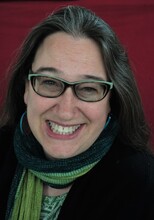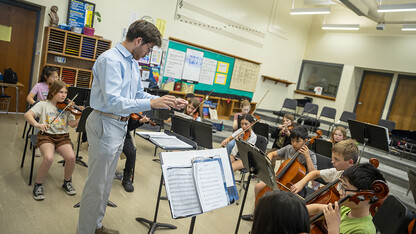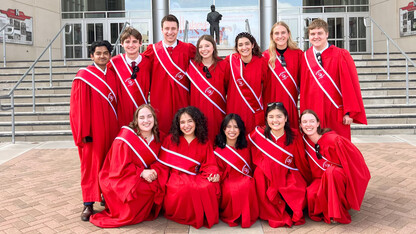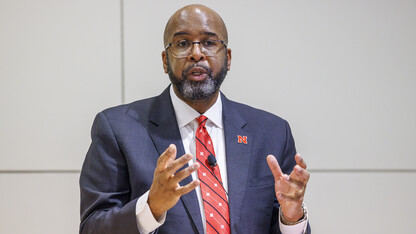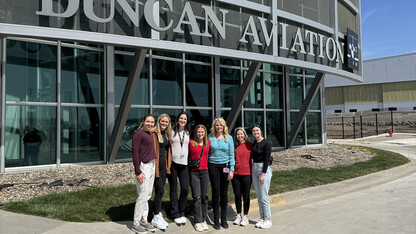· 3 min read
English masking up to celebrate Creative Writing Month
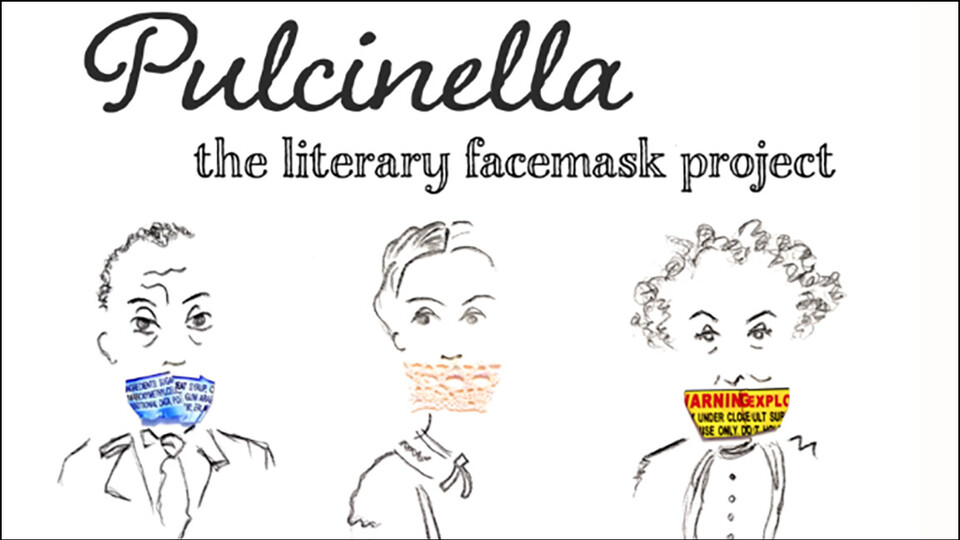
Don’t put the message in a bottle — rather, put it on a mask for all to see.
To celebrate Creative Writing Month in October, the University of Nebraska–Lincoln’s Department of English is sponsoring Pulcinella: The Literary Facemask Project.
The department will also welcome Native American poet and fiction writer Heid E. Erdrich at 3:30 p.m., Oct. 13 via Zoom, for a reading of and discussion on her newest poetry collection, “Little Big Bully.”The facemask project is a twist on the personal impacts of the COVID-19 pandemic. Submissions of poetry and prose should be able to fit on a mask and be legible from six feet away. While all submissions are welcome, contest organizers are particularly interested in creative works that are relevant to the current touchstones of masks, pandemics, physical space and distance.
The contest is named for Pulcinella, a character of the Italian commedia dell’arte, who originated in the 17th century. Pucinella was portrayed as a social chameleon, adapting to the circumstances around him, and always appear in mask on stage.
Submissions can be made throughout the month, and a winner will be chosen at the end of October by judges, including alumna and novelist emily danforth, who authored “The Miseducation of Cameron Post,” and the forthcoming “Plain Bad Heroines.” There will be three categories: undergraduate, graduate, and faculty/staff. The winning selections will be made into masks.
Favorite submissions also will be shared during October on the Department of English website.
Timothy Schaffert, director of creative writing and Susan Rosowski Professor of English, said his own forays into thinking creatively about masks led to the project.
“Some of my artist friends and I have been using a custom facemask company to print our artwork on masks, and I had one made with some text from a short story of my own,” he said. “The project evolved from that.”
All are welcome to listen in during Erdrich’s reading and discussion. Erdrich is an Ojibwe writer and editor of poetry, short stories and nonfiction, and an artist. “Little Big Bully” is an examination of American culture, beginning with a question asked to a collective and troubled “we” — how did we come to this?
From Penguin Books: “In answer, this book offers personal myth, American and Native American contexts, and allegories driven by women’s resistance to narcissists, stalkers, and harassers. These poems are immediate, personal, political, cultural, even futuristic object lessons. What is truth now? Who are we now? How do we find answers through the smoke of human destructiveness? The past for Indigenous people, ecosystem collapse from near-extinction of bison, and the present epidemic of missing and murdered Indigenous women underlie these poems. Here, survivors shout back at useless cautionary tales with their own courage and visions of future worlds made well.”
Some previously scheduled Creative Writing Month activities have been postponed, due to the COVID-19 pandemic, but Schaffert said other events are moving forward in a virtual capacity, including a publishing week, featuring panel discussions with publishing professionals, including agents and editors. Those details are still being finalized and will be announced soon.
